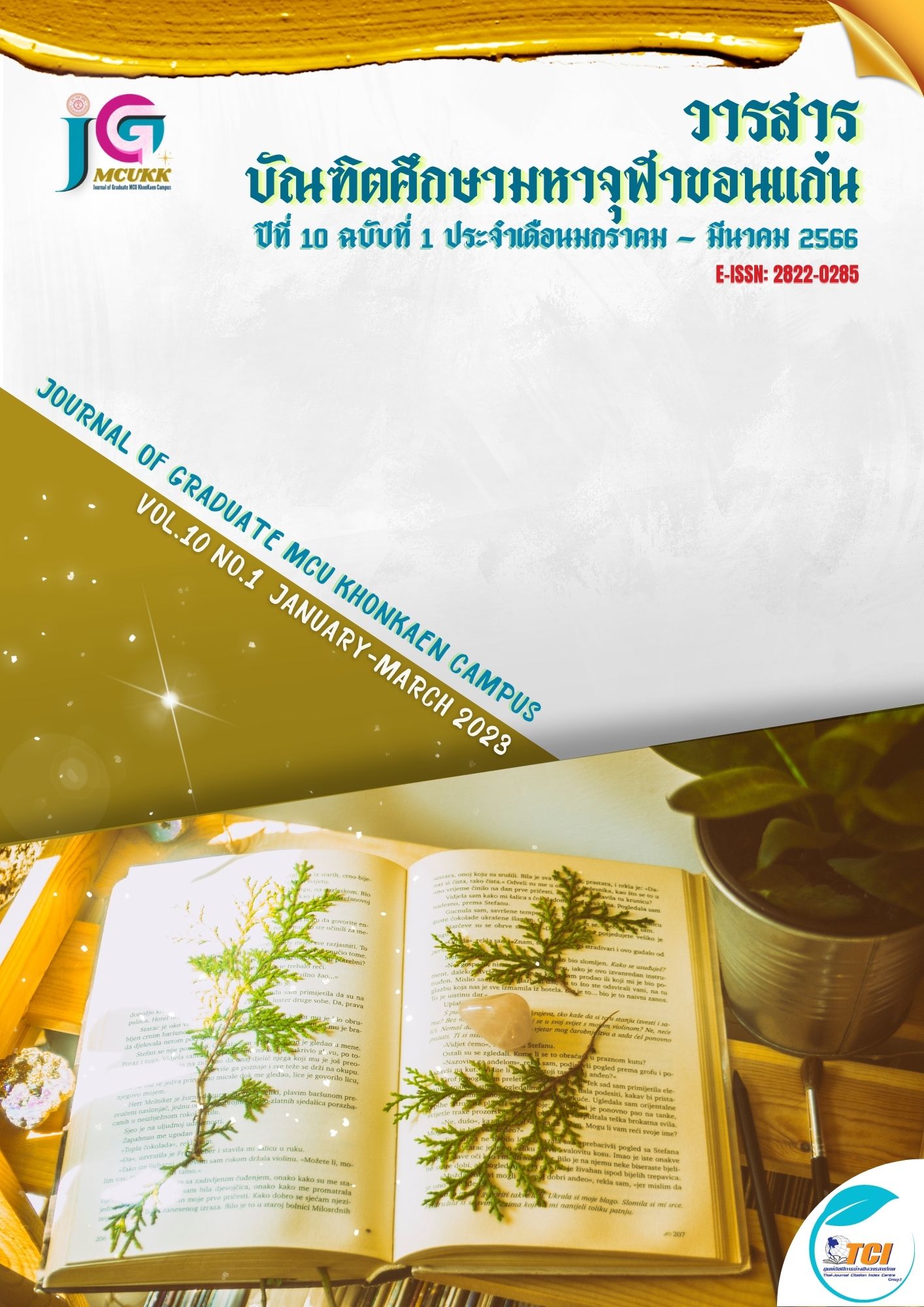The Personnel Administration According to the Seven Sappurisadhamma in Basic Educational Institutions under the Office of Maha Sarakham Primary Education Service Area 3
Main Article Content
Abstract
The objectives of this research were: 1) to study the conditions of personnel administration in basic educational institutions under the Office of Maha Sarakham Primary Educational Service Area 3; 2) to propose guidelines for personnel administration according to the Seven Sappurisadhamma principles in basic education institutions under the Office of Maha Sarakham Primary Educational Service Area 3. This study was carried out by means of mixed method research, both quantitative and qualitative methodologies. The research tools consisted of a questionnaire and a semi-structured interview. For quantitative research, the sample group consisted of 402 participants. The research tools were a questionnaire and an interview form. The reliability value of the entire questionnaire was 0.90. The quantitative data were analyzed using percentage, mean, and standard deviation.
The research results were as follows:
1) In overall and each aspect, the personnel administration, according to the Seven Sappurisadhamma in basic educational institutions under the Office of Maha Sarakham Primary Educational Service Area 3, has been practiced at a high level. The most practiced aspect was Dhammaññut (knowing the cause), followed by Attaññut (knowing the result), and the lowest was the Parisaññut (knowing the community).
2) Guidelines for personnel administration according to the Seven Sappurisadhamma are: (1) administrators should administer personnel with fairness without prejudice;
(2) educational institutions should allow personnel to equally participate in expressing their opinions; (3) administrators should be willing to advise personnel all times;
(4) educational institutions should allocate budgets to support personnel development in expenses reasonably; (5) educational institutions should provide opportunities for communities to participate; (6) personnel should be encouraged to express their opinions on personnel administration thoroughly; (7) educational institutions should support personnel to continue their education/training so that they have the opportunity to develop and advance in their work responsibilities.
Article Details

This work is licensed under a Creative Commons Attribution-NonCommercial-NoDerivatives 4.0 International License.
References
เกศกัญญา อนุกูล. (2553). การบริหารโครงงานคุณธรรมเฉลิมพระเกียรติ ตามหลักสัปปุริสธรรม 7 ของโรงเรียนระดับมัธยมศึกษา สังกัดสำนักงานเขตพื้นที่การศึกษาสมุทรปราการ เขต 2. (วิทยานิพนธ์พุทธศาสตรมหาบัณฑิต). บัณฑิตวิทยาลัย: มหาวิทยาลัยมหาจุฬาลงกรณราชวิทยาลัย.
จุรี อุไรวัฒนา. (2548). การศึกษาสภาพการบริหารสถานศึกษาขั้นพื้นฐานขนาดเล็กที่เป็นนิติบุคคล สังกัดสำนักงานเขตพื้นที่การศึกษาราชบุรี เขต 1 และเขต 2. (วิทยานิพนธ์ครุศาสตรมหาบัณฑิต). บัณฑิตวิทยาลัย: มหาวิทยาลัยราชภัฏนครปฐม.
บุญชม ศรีสะอาด. (2554). การวิจัยเบื้องต้น. (พิมพ์ครั้งที่ 6). กรุงเทพฯ: สุวีริยาสาสน์.
พระครูศรีสุธรรมนิวิฐ (ธานี สุขโชโต). (2560). กระบวนการการบริหารงานบุคคลของมหาวิทยาลัยมหาจุฬาลงกรณราชวิทยาลัยตามหลักพุทธบริหารการศึกษา. (วิทยานิพนธ์พุทธศาสตรดุษฎีบัณฑิต). บัณฑิตวิทยาลัย: มหาวิทยาลัยมหาจุฬาลงกรณราชวิทยาลัย.
พระมหาธฤติ วิโรจโน (รุ่งชัยวิฑูร). (2552). การบริหารงานบุคคลตามหลักธรรมทางพระพุทธศาสนาของโรงเรียนในเขตธนบุรี สังกัดกรุงเทพมหานคร. (วิทยานิพนธ์พุทธศาสตรมหาบัณฑิต). บัณฑิตวิทยาลัย: มหาวิทยาลัยมหาจุฬาลงกรณราชวิทยาลัย.
ยศกมล เรืองสง่า. (2551). สภาพปัญหาและแนวทางการจัดการศึกษาของศูนย์อบรมเด็กก่อนเกณฑ์ในวัดจังหวัดนครพนม. (วิทยานิพนธ์ครุศาสตรมหาบัณฑิต). บัณฑิตวิทยาลัย: มหาวิทยาลัยราชภัฎสกลนคร.

